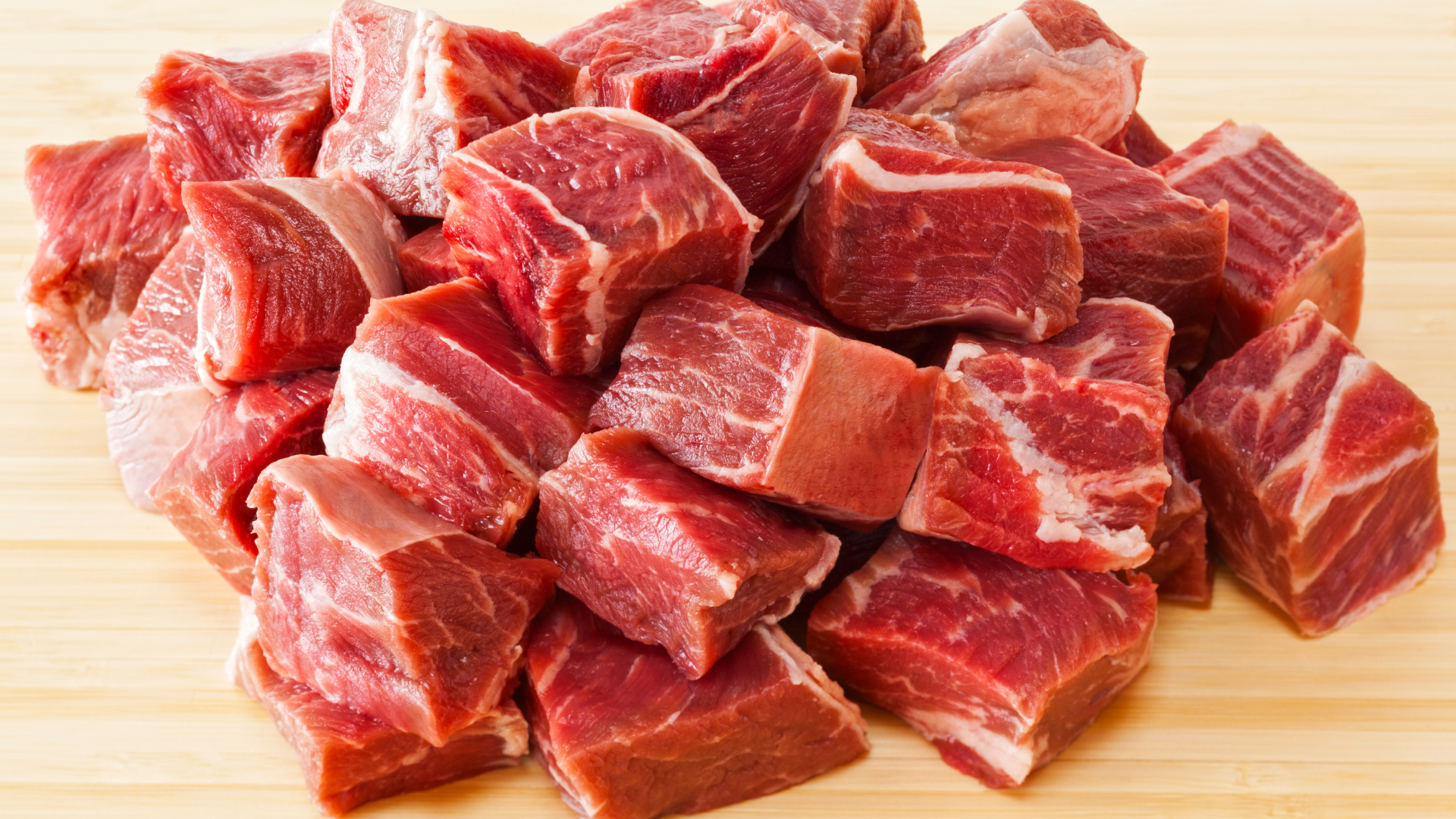In this article, we look at the impact of provenance of food in our supply chain and how it can shape consumer decisions.
At a time when consumers are looking for more data about their food to inform their buying decisions, provenance has power.
But what is provenance in the context of the food industry? In this article we are looking at the origin or source of our food and the journey it takes from the farm to the supermarket shelves. But, just like our supply chain, provenance is not simple - and neither are the reasons why we need to understand it.
No matter where you are in the supply chain – from producers and importers to distributors – having that information is vital to both the food industry and to consumers.
When we talk about food provenance, there are five factors to consider:
1. Traceability2. Quality
3. Sustainability
4. Cultural and historical significance
5. The economics
Traceability
Let’s first look at traceability. Being able to prove the provenance of a product in a food safety context means that if there is an issue with contamination or a foodborne illness, it is possible to track said problem back to the source, addressing it quickly and allaying consumer fears.
Quality
Provenance can also guarantee the authenticity – and quality – of a product. This is especially important if a product is associated with a region – Scotch beef UK GI (Geographical Indication) must be born, reared and processed in Scotland, champagne must produced in the Champagne AOC of France, and Stilton has to come from Derbyshire, Leicestershire or Nottinghamshire (but ironically not the village of Stilton, which lies in Cambridgeshire). This stamp of authenticity ensures quality and carries weight – and trust – with consumers. These region-specific items can be targets for food fraudsters, so provenance is a powerful tool in the fight against them.
Sustainability
Provenance is also a way of informing consumers about how their food has been grown/raised, especially when it comes to sustainability and ethics. It can educate on organic practices, sustainable farming methods and even fair labour standards.
Cultural and historical significance
Consumers are also fascinated by the stories behind their food. Knowing who has made something and for how many generations can add worth and appeal to a product.
The economics
Knowing the provenance of a product can also have an economic impact. In fact, three in five consumers worldwide prefer to buy food from their own country according to a 2022 YouGov study. On a local level, this can help support and nurture not just small businesses but the local economy in general.
The bigger provenance picture
There is also a second level of relevance to consider when it comes to provenance – and that it is the broader social impact it can have. In this case, issues such as community building, environmental sustainability, agricultural diversity, cultural preservation, global equity and consumer empowerment all figure. Some of the same factors, such as historical significance and the environmental impact, are relevant here as well.
This is how provenance affects all these areas.
Community
Provenance knowledge enables consumers to actively support their local community and the producers in it. identifying a shoulder of lamb as being reared by a local farmer or cheese being made by a local producer gives the consumers the power to invest in food grown and raised in the community. This can be done in varying ways from simple labels on packaging to larger advertising initiatives.
Fair trade
Provenance can affect consumer behaviour when information around labour practices are made available. Fair pay and safe conditions in the supply chain are big talking points here, especially in sectors where regulations aren’t as stringent in the producer countries. This can apply to items such as chocolate, coffee and bananas, where fair trade labelling is often present.
Cultural identity
Provenance can also be linked to the cultural identity of a product and the area from which it is produced. When a recipe or process has been passed down, creating a tradition, it gathers cultural significance. Preserving that heritage not only enforces value but also makes it more attractive to consumers.
Environmental impact
Provenance information can reveal the environmental impact of a product – from how far it’s travelled to the practices used to produce it. After all, an avocado that has travelled from California to your supermarket shelf is going to have a larger carbon footprint than a carrot grown organically by a local farmer. Information around sustainability, organic processes and environmental stewardship practices are also part of this conversation.
Consumer empowerment
Provenance can empower consumer choice, with supply chain transparency around a product’s origins ensuring that consumers can shop in line with their personal values, with one in four consumers prepared to pay more for sustainability according to a 2023 Deloitte report.
Diversity in agriculture
Biodiversity can also be impacted by the availability of provenance data. When consumers choose locally sourced items they help to make space for diversity in agriculture instead of just supporting the more commercially viable options.
Global equity
Provenance can also promote ethical purchasing conversations by highlighting global inequalities in farming and food production and distribution. A farmer in a developing country will face different challenges and costs to one in a developed nation – these can range of environmental issues to labour battles for fair pay. Awareness around this can influence consumer practices.
Industry regulations, certifications & guidelines for food provenance
Core provenance guidelines
Global regulatory bodies have provided guidelines for what provenance information should be included on product labels. These bodies include the UK’s Food Standards Agency (FSA) and the Australian government’s Department of Agriculture, Fisheries and Forestry, who unveiled the first National Agricultural Traceability Strategy earlier this year. Organisations in the United States have also become auditing traceability systems in preparation for FSMA204, which comprises new regulations for traceability recordkeeping.
Without accurate information, it will not be possible to achieve full regulatory compliance. Examples of this type of information include:
- Compliance with food-type regulations
- A list of ingredients with accurate descriptions, quantities and nutritional content
- Information about allergens and additives
- Country of origin or place of provenance
- Expiry dates
- Storage information and instructions
Additional provenance guidelines & certifications
Beyond the basics, there is much that can be done to set food businesses apart from their competitors based on provenance. These could include certifications such as:
- B Corp
- Soil Association
- RSPCA Assured
- Fairtrade
- Marine Stewardship Council and Aquaculture Stewardship Council
- The Vegan Trademark
- Roundtable on Sustainable Palm Oil
- Red Tractor
- GLOBALG.A.P (Global Good Agricultural Practices)
- SourceCertain (Australia’s leading provenance testing services)
Increasingly, businesses in the food supply chain are turning to their own food provenance verification processes. That’s where Foods Connected enters the picture, taking your food business beyond generic information and tailoring data analysis to your needs.
Looking for the real story behind the food you source and supply? Contact Foods Connected today to find out more about our safety, quality and traceability management solutions. Alternatively, request a demo of our award-winning supply chain management software.
And if you'd like to learn more about how effective food security can help build sustainable more resilient food systems, watch our webinar on the subject below.
.jpg)
Greer McNally
Greer has over 15 years’ experience writing about trends in the food and retail sectors. She lives in a little village by the sea in Northern Ireland and loves creating content that informs how people think about the food industry. A recent career highlight was interviewing the legend that is Dr Temple Grandin.
Stay up to date
Stay up to date
Browse Posts
- February 2026
- January 2026
- December 2025
- November 2025
- October 2025
- September 2025
- August 2025
- July 2025
- June 2025
- May 2025
- April 2025
- March 2025
- February 2025
- January 2025
- December 2024
- November 2024
- October 2024
- September 2024
- August 2024
- July 2024
- June 2024
- May 2024
- April 2024
- March 2024
- February 2024
- January 2024
- December 2023
- November 2023
- October 2023
- September 2023
- August 2023
- July 2023
- June 2023
- May 2023
- April 2023
- March 2023
- December 2022
- November 2022
- October 2022
- September 2022
- August 2022
- July 2022
- June 2022
- May 2022
- April 2022
- March 2022
- February 2022
- January 2022
- December 2021
/Blog%20Headers/shutterstock_2486860775.jpg)


/Blog%20Headers/shutterstock_1927957907%20(1).jpg)
/Blog%20Headers/shutterstock_1845178195%20(2).jpg)
/Blog%20Headers/shutterstock_2133827717%20(1).jpg)
/Blog%20Headers/shutterstock_2473376713.jpg)
/Blog%20Headers/shutterstock_2474442759.jpg)





/Blog%20Headers/Digital%20Food%20safety%20management%20system.jpg)
/Blog%20Headers/shutterstock_2379574047.jpg)

/Blog%20Headers/finnebrogue-hero-01-1.jpg)
.png)

/Blog%20Headers/shutterstock_1886990077.jpg)
/Blog%20Headers/Duncan%20Spencer%20Brown.png)
/1.%20HubSpot%20Images/IMG_20230605_144537.jpg)